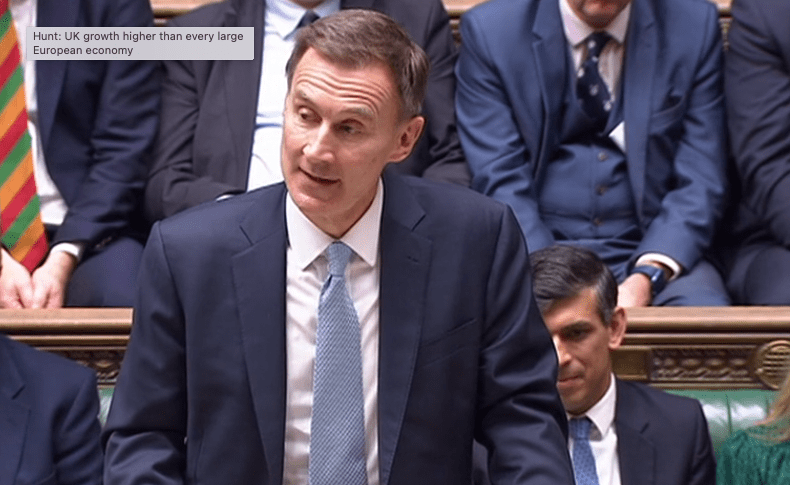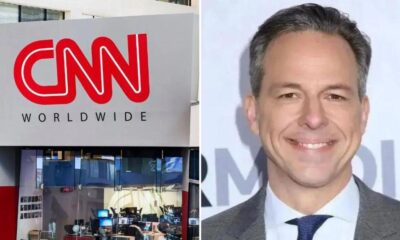Business
Hunt refutes Labour’s claims of a ‘black hole’ in the budget

Jeremy Hunt, the recently ousted chancellor, has dismissed Rachel Reeves’ allegations about a supposed £22 billion budget deficit as baseless.
Despite leaving his post at No 11 Downing Street a month ago, Hunt appears relieved and cheerful as he addresses these claims.
In a interview with TimeAs he relaxed in a cafe in Godalming, Surrey, Hunt appeared to enjoy his reprieve from the pressures of his former role. Yet Reeves, his successor, has tried to undermine his legacy by accusing him of fiscal mismanagement. She claims Hunt’s policies have forced Labor to make unpopular decisions, including the cancellation of infrastructure projects and threatened tax increases.
Hunt strongly disputes these allegations, labeling them as fictitious and a political maneuver. He emphasizes his historically cordial relationship with Reeves and expresses dismay at her tactics. He believes her allegations are a major misstep that the Conservative Party can exploit to challenge Labour’s justification for tax increases in the upcoming budget.
To bolster his defense, Hunt has contacted Simon Case, the Cabinet Secretary, to seek clarity on the financial estimates approved just weeks before Reeves’ claims. He argues that if there had been such a substantial budget deficit, it would have been impossible for Treasury officials to overlook or conceal it.
Hunt points out that while pressure on public finances continues, it can be managed through strategic planning and productivity improvements. He criticizes Reeves for choosing to implement £9.4bn of public sector pay rises without tackling productivity inefficiencies, which he considers unsustainable.
Hunt also rejects claims regarding overspending on the asylum system and use of the reserve fund. He criticizes Labour’s decision to end the Rwanda programme, arguing it has led to higher costs rather than savings.
Looking ahead, Hunt is preparing a counterattack while temporarily serving as shadow chancellor. He has urged the Conservative Party to tackle key issues such as immigration and the housing crisis to regain voter confidence, especially among younger demographics.
Reflecting on the Conservative Party’s recent election defeat, Hunt emphasizes the need for strategic patience and learning from the Labor approach under Keir Starmer. He remains confident in his own legacy and points to current favorable economic indicators as evidence of his effective stewardship.
As the battle for the Conservative leadership unfolds, Hunt plans to return to the back benches, leaving his support open but strongly advocating for policy-driven solutions to the party’s challenges.











